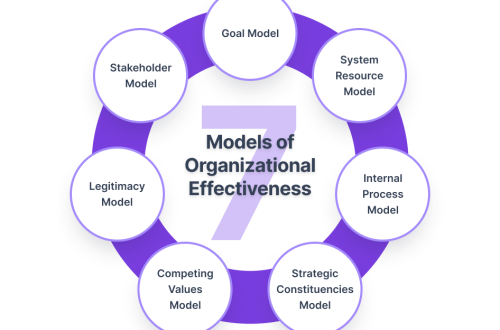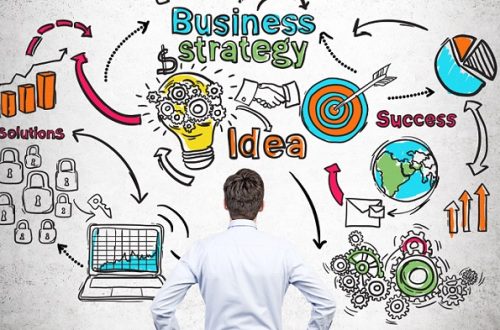Building a timeless business isn’t about luck or mere survival—it’s about crafting a company that remains relevant, resilient, and valuable across generations. While most startups and companies fade within a few years, timeless businesses like Apple, Toyota, and Coca-Cola continue to thrive for decades. The key lies in a strategic, well-balanced framework that integrates adaptability with enduring principles.
Below is a comprehensive, step-by-step framework designed to help entrepreneurs, leaders, and organizations build a business that stands the test of time.
What Defines a Timeless Business
A timeless business is one that outlives trends, economic cycles, and even leadership changes. It continues to serve customers and society effectively because it’s grounded in purpose, guided by strong values, and built on adaptable systems.
Key Traits of Timeless Businesses
- Clear and consistent purpose that inspires both employees and customers.
- Adaptive structures that can evolve with market shifts.
- Customer-centric operations that never lose sight of real-world needs.
- Financial discipline that prioritizes sustainability over short-term gains.
- Strong leadership and culture that perpetuate innovation and integrity.
1 – An Enduring Purpose (Your North Star)
Every timeless business begins with a clear, meaningful purpose. This purpose acts as a compass during times of uncertainty and guides every decision across departments.
How to Create an Enduring Purpose
- Identify the problem you exist to solve. Define your “why” in a single sentence. Example: We make healthy eating accessible for busy professionals.
- Align every decision to the purpose. From hiring to marketing, your core mission should inform your actions.
- Embed it into company culture. Your team should be able to recite the company’s purpose and understand how their roles contribute to it.
Signs Your Purpose Is Genuine
- Employees reference it when making decisions.
- Customers feel emotionally connected to your brand.
- It remains relevant even when your product line evolves.
2 – Customer Obsession (Not Just Service)
A timeless business doesn’t just serve its customers—it obsesses over them. True customer obsession means anticipating their needs, listening closely, and continuously improving to meet their evolving expectations.
How to Build a Customer-Obsessed Organization
- Centralize customer insights. Gather feedback through surveys, social listening, and direct interactions.
- Measure meaningful outcomes. Track customer success metrics such as satisfaction, loyalty, and lifetime value instead of just sales.
- Close the feedback loop. Implement a system where customer insights quickly translate into action and innovation.
Sustainable Practices
- Establish a Customer Advisory Board to provide ongoing insights.
- Rotate executives through customer support roles to stay grounded in real user experiences.
- Regularly publish internal reports highlighting lessons learned from customer interactions.
3 – Product-Market Longevity (Fit That Evolves)
Product-market fit is not a one-time milestone. To build a timeless business, you must ensure your products remain relevant as markets and technologies evolve.
Strategies for Product Longevity
- Focus on fundamental human needs. Build around needs that won’t vanish, such as connection, convenience, or security.
- Design modular systems. Products should be easy to upgrade or extend without complete overhauls.
- Adopt platform thinking. Create ecosystems—through APIs or partner programs—that allow third parties to innovate around your core offering.
Self-Assessment Questions
- Does your product address a lasting problem?
- Can your team quickly iterate without disrupting users?
- Is your technology scalable and adaptable to new markets?
4 – Financial Durability (Profitability and Optionality)
Financial discipline is one of the strongest signs of a timeless business. Companies that outlast crises are those that manage cash wisely, balance growth with sustainability, and maintain financial flexibility.
Core Financial Principles
- Know your unit economics. Understand customer acquisition cost (CAC) and lifetime value (LTV).
- Build financial buffers. Maintain a 12–24 month cash runway to weather unexpected downturns.
- Diversify revenue streams. Don’t rely on one product, one client, or one region for income.
Practical Financial Strategies
- Reinvest profits into R&D and innovation rather than vanity expansions.
- Run financial stress tests quarterly to identify weak spots.
- Align your capital allocation with long-term priorities, not just short-term wins.
5 – Adaptive Strategy (Continuous Experimentation)
Markets evolve rapidly. Businesses that stand the test of time embrace strategic adaptability, continuously testing, learning, and evolving.
How to Build Adaptive Strategy
- Run small, measurable experiments. Pilot new ideas with minimal risk before scaling.
- Set a decision cadence. Conduct monthly product reviews, quarterly strategy resets, and annual long-term planning.
- Establish clear stop-loss rules. Terminate projects that fail to deliver results early to save time and resources.
Organizational Implementation
- Allocate a dedicated innovation budget.
- Empower cross-functional teams to run and evaluate experiments.
- Encourage transparency in both successful and failed experiments—failure is a lesson, not a loss.
6 – People and Culture (Values + Capability Building)
No business becomes timeless without the right people and culture. Strong values, consistent learning, and leadership continuity ensure your organization stays vibrant for decades.
Elements of a Timeless Culture
- Defined values. Core principles that guide decision-making even in the absence of leadership.
- Leadership development. Train and promote from within to sustain institutional knowledge.
- Accountability and recognition. Reward employees who embody the company’s mission and innovate for long-term impact.
Building Cultural Strength
- Conduct regular values alignment workshops.
- Create mentorship programs that transfer skills across generations.
- Celebrate contributions that improve the business for the future, not just the quarter.
7 – Innovation and Continuous Improvement
Innovation keeps a company relevant, while continuous improvement keeps it efficient. A timeless business is both creative and disciplined—it knows when to explore and when to refine.
Innovation Framework
- Encourage idea generation at all levels, not just the top.
- Adopt lean experimentation. Validate new ideas through low-cost prototypes.
- Leverage technology. Use data analytics and AI to identify emerging trends before competitors.
Continuous Improvement Practices
- Implement a feedback-driven improvement loop in every department.
- Set quarterly innovation goals linked to measurable business outcomes.
- Keep revisiting and optimizing existing systems for better performance.
8 – Leadership and Governance (Steering the Ship)
Strong, ethical leadership is the backbone of any timeless business. Governance ensures that decisions align with purpose, values, and stakeholder interests.
Leadership Principles for Longevity
- Lead with integrity and transparency. Trust compounds over time.
- Build succession plans. Prepare future leaders before you need them.
- Balance vision and execution. Leaders must inspire but also implement.
Governance Best Practices
- Maintain a diverse and active board of directors.
- Ensure compliance and accountability through internal audits.
- Foster a culture where dissenting opinions are valued, not silenced.
Conclusion: Building for Generations, Not Quarters
A timeless business is built with foresight, resilience, and purpose. It balances innovation with consistency, vision with execution, and profit with ethics. Whether you’re a startup founder or a seasoned executive, embedding these pillars into your company’s DNA ensures it not only survives—but thrives—for decades to come.
Frequently Asked Questions (FAQs)
1. What is the first step to building a timeless business?
Start with defining a clear and enduring purpose that reflects the problem you aim to solve. Everything else—product, culture, and strategy—should align with that purpose.
2. How do I maintain customer loyalty over the long term?
Focus on continuous engagement, personalized experiences, and adapting to customer feedback. Build relationships, not just transactions.
3. Can a small business become timeless?
Absolutely. Many timeless businesses began small. The key is consistency, adaptability, and a deep understanding of your niche.
4. How can a company stay innovative while maintaining stability?
Adopt a dual approach—allocate resources for core business optimization while dedicating a separate budget for experimentation and innovation.
5. What role does company culture play in business longevity?
Culture sustains your organization through leadership changes and market turbulence. A strong culture aligned with core values keeps the business focused and united.
6. How important is financial discipline for timelessness?
Critical. Financial strength provides flexibility during crises and ensures sustainable growth. Always prioritize profitability and diversification.
7. How can leaders ensure the business legacy continues?
Through succession planning, mentorship, and codifying core values so that future leaders can carry the mission forward.




